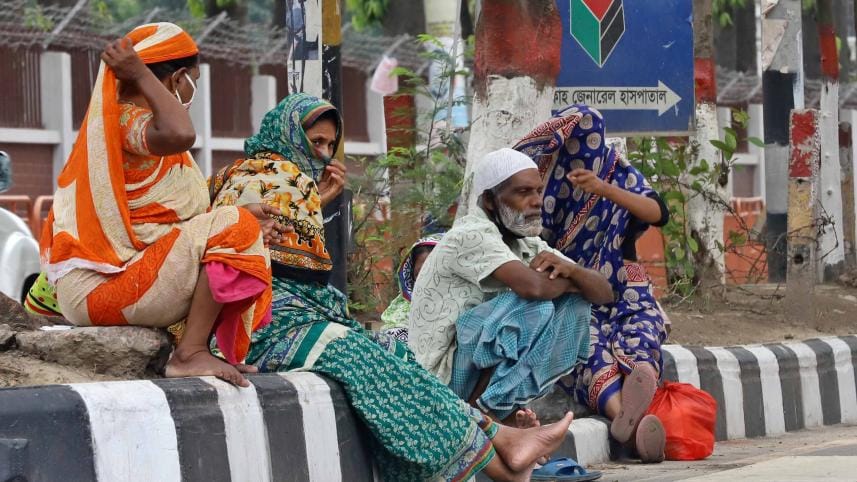Poverty reduction rates arithmetically correct. Do they reflect reality?

Bangladesh is doing better than many countries in reducing poverty. However, questions remain whether the data about poverty alleviation match reality, according to Prof Joe Devine, an expert on poverty, inequality, and vulnerability.
Officially, 5.6 percent of the population in Bangladesh are classified as extreme poor. This means, the country is technically close to being a nation with zero extreme poverty, he said.
"I am sure the calculations on extreme poverty are arithmetically correct, but I doubt they reflect reality."
He made the comments during an interview on the sidelines of an international conference at the Pan Pacific Sonargaon Dhaka recently.
Devine, also an associate pro-vice-chancellor at the University of Bath in the UK, said: "If it is really true that extreme poverty levels are that low, perhaps the way we talk about and categorise poverty is not very helpful."
"I understand that policymakers might want simple and accurate calculations but as a researcher, I see poverty as a far more complex experience and I wonder if our calculations capture the complexity."
The researcher said the latest data from the Household Income and Expenditure Survey (HIES) showed that fears of growing inequality are well-founded.
He drew attention to the fact that research into inequality in Bangladesh is very much in its infancy, and more work is needed to understand what shape inequality will take.

"We've got some figures from the HIES. Apart from that, we don't know much about inequality."
"In order to properly do that kind of analysis, we need to get a better sense of the dynamics of class formation and reproduction and the relations between different groups on the inequality spectrum."
People in Bangladesh talk about the middle class. And, according to Prof Devine, the middle class is a broad category, and it can cover people who are rich right down to the people who might be doing well but are not rich.
"Thus, this is one category that really needs to be better understood."
He said one can easily observe aspects of inequality in Bangladesh: some people live comfortably and their options in life are going to be much better.
"You can also see some people who might even be professionals but are struggling with the cost of living. Are these all parts of the middle class? Do they share the same experiences? I doubt it. And we know even less about the impact of inequality on poor people."
He said when inequality is discussed, it usually refers to one person's relative position to another. "So, we need to start by understanding more how different people experience inequality."
Inequality is not unique to Bangladesh. Rather, it is a common phenomenon in many countries.
Prof Devine said discussions about inequality are tough political economy questions because they ultimately point to society's willingness to support redistribution measures.
He elaborates unequal societies tend not to develop very well.
"If inequality rises in Bangladesh and poverty persists, this will result in unsustainable conditions that will only bring uncertainty and perhaps unrest. There are moral and pragmatic reasons why Bangladesh should consider carefully the challenges posed by a rise in inequality."
Prof Devine co-authored the book "Aiding Resilience Among The Extreme Poor In Bangladesh". During the interview, he talked about the enduring nature of inequality, citing education and health as examples.
"We can see in Bangladesh a plethora of health and education services that cater to the rich, the middle class and the poor. Inevitably, those servicing the poor will not be providing the same quality of care and attention. This has intergenerational impacts."
"So, if I can't go to school or I have poor health, it is more likely that my children will not go to school or suffer from poor health. Inequality, like poverty, is reproduced over time and as it does, it becomes tougher, more intractable."




 For all latest news, follow The Daily Star's Google News channel.
For all latest news, follow The Daily Star's Google News channel.
Comments